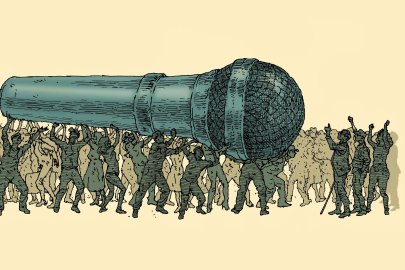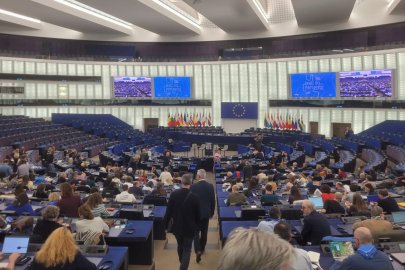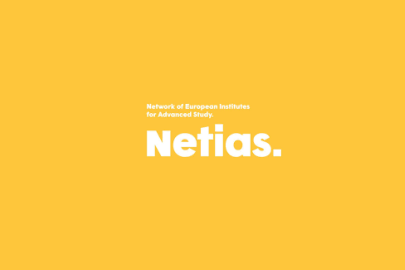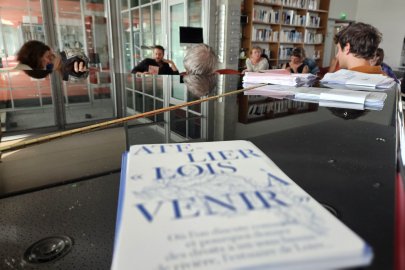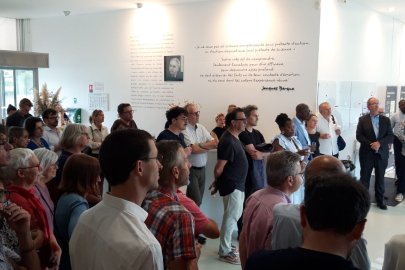As part of the #IdeesDebats series, the Nantes Institute for Advanced Study hosted anthropologist Alix Levain at Le Lieu Unique on October 14, 2025. Levain is a researcher at the AMURE laboratory (UBO) and a member of the investigative collective on the Yellow Vests movement.
This talk is part of an interdisciplinary research project conducted between 2020 and 2025 by anthropologists, sociologists, and political scientists, focusing on the repertoires of action and processes of politicization within the movement.
In her lecture, Alix Levain examined a distinctive and still little-studied body of material: the cahiers de doléances produced during the movement—heterogeneous documents combining letters, forms, lists, demands, and accounts of living conditions. Analyzing them makes it possible to explore how Yellow Vests articulate their concerns, including ecological ones, and how localized forms of politicization emerge.
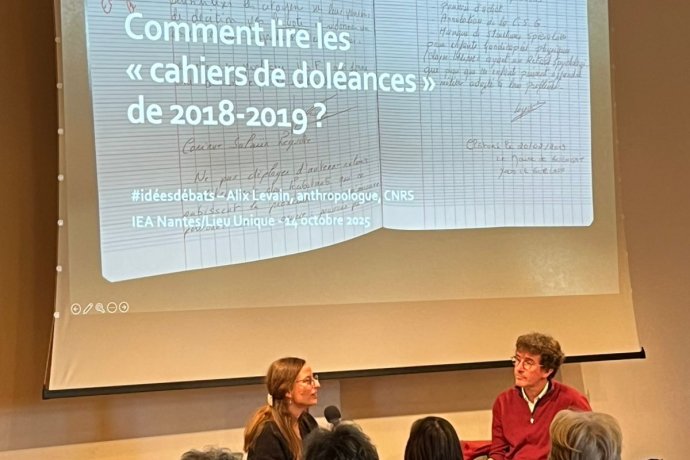
Among those in attendance, Verónica Calvo Valenzuela (2025–2026 resident at the Institute) offers this insightful perspective on the lecture:
“Between 2020 and 2025, a collective of researchers from different disciplines (anthropology, political science, sociology) conducted an investigation into the repertoires of action and the processes of politicization within the Yellow Vests movement. One part of their research examines the relationship between the Yellow Vests and ecology. Anthropologist Alix Levain, a researcher at the AMURE Laboratory and a member of the collective, came to present the specific challenges involved in studying the cahiers de doléances. Through her, we learn that the materials that make up these notebooks are highly heterogeneous. Forms, letters, and lists together constitute the corpus, which was initially intended to gather accounts of living conditions and demands. The term ‘doléance’ (‘grievance’) was added only later in the movement.
The heterogeneity of these notebooks and the limited information available on the contexts in which they were written make their use from a sociological perspective particularly delicate. By combining lexical analysis, indicators of semantic proximity, and inductive coding, the researchers managed to establish thematic categories and headings that allow them to put forward several hypotheses—most notably that a form of step-by-step politicization is at work, and that a popular form of ecology exists within these demands.
The notebooks, for example, denounce the installation of Linky meters, call for the protection of coastal areas, and address issues related to the exploitation of agricultural land. At the same time, they denounce measures that the researchers identify as belonging to an ‘institutional ecology,’ such as the diesel regulation that triggered the first mobilizations. The meticulousness and rigor of the study make it possible to critically examine so-called ‘ecological’ positions in order to shed light on these new forms of politicization and mobilization.”






